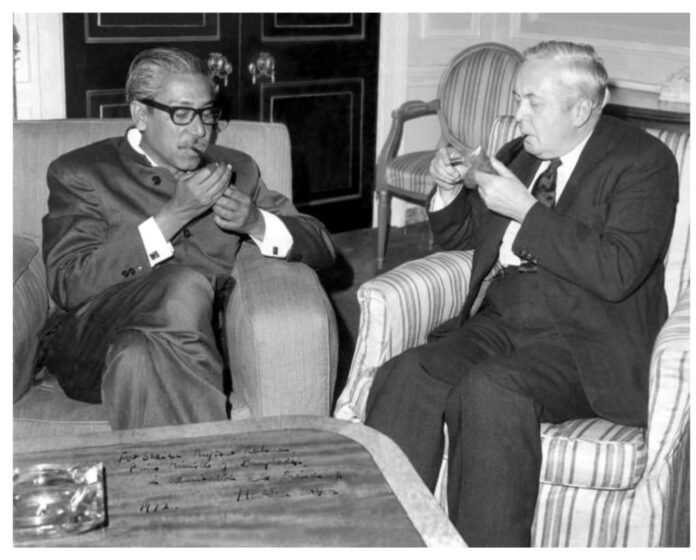The United Kingdom recognizes Sheikh Mujibur Rahman as an extraordinary leader and a symbol of national liberation. As the founding father of Bangladesh, he is admired for his unwavering dedication to the rights and dignity of the Bengali people. British leaders, historians, and intellectuals have long appreciated his pivotal role in leading a non-violent democratic struggle that culminated in the birth of an independent nation in 1971.
Often referred to as “Bangabandhu” (Friend of Bengal), Sheikh Mujib’s leadership is viewed in the UK as a blend of moral conviction, political determination, and profound empathy for his people. His commitment to democracy, secularism, and social justice placed him alongside the world’s most iconic post-colonial leaders. In British academic and political discourse, Sheikh Mujib is frequently mentioned in the same breath as figures like Mahatma Gandhi and Nelson Mandela — individuals who led their nations to freedom through vision, sacrifice, and non-violent resistance.
The United Kingdom’s admiration for Sheikh Mujib was especially evident during his visit to London in January 1972 following his release from imprisonment in Pakistan. There, he was warmly received by British officials and international media. His calm yet powerful presence during meetings with British Prime Minister Edward Heath and others reflected the resilience of a man who had suffered immensely yet remained committed to peace, diplomacy, and reconstruction.
British scholars commend his Six-Point Movement as a masterstroke of constitutional and political strategy, highlighting his legalistic and democratic approach to autonomy. They view his leadership during the turbulent years leading to Bangladesh’s independence as a model of ethical political resistance against oppression.
His assassination in 1975 is regarded in the UK as a dark chapter that not only robbed Bangladesh of its visionary leader but also disrupted the democratic evolution of a newly born nation. Over the decades, various British leaders and institutions have paid tribute to his memory, recognizing the void left by his untimely death and acknowledging the enduring strength of his legacy.
Among the British-Bangladeshi community, Sheikh Mujibur Rahman is not only a historical figure but a source of ongoing inspiration. Cultural centers, educational forums, and community events in the UK regularly commemorate his life and ideals, reinforcing his international image as a leader of the people.
In sum, the United Kingdom views Sheikh Mujibur Rahman as a towering figure of moral authority, whose leadership, courage, and vision helped change the course of South Asian history. His legacy remains a powerful reminder of how deep-rooted commitment to justice and democracy can reshape the destiny of a nation.


